
A silent film is a film without synchronized recorded sound. Though silent films convey narrative and emotion visually, various plot elements or key lines of dialogue may, when necessary, be conveyed by the use of inter-title cards.

The cinema of Australia began with the 1906 production of The Story of the Kelly Gang, arguably the world's first feature film. Since then, Australian crews have produced many films, a number of which have received international recognition. Many actors and filmmakers with international reputations started their careers in Australian films, and many of these have established lucrative careers in larger film-producing centres such as the United States.

Alexandra's Project is a 2003 Australian drama thriller film written and directed by Rolf de Heer and starring Gary Sweet and Helen Buday.

Bad Boy Bubby is a 1993 psychological absurdist black comedy film written and directed by Rolf de Heer, and starring Nicholas Hope, Claire Benito, Ralph Cotterill, and Carmel Johnson.
The Adelaide Film Festival is a film festival usually held for two weeks in mid-October in cinemas in Adelaide, South Australia. Originally presented biennially in March from 2003, since 2013 AFF has been held in October. Subject to funding, the festival has staged full or briefer events in alternating years; some form of event has taken place every year since 2015. From 2022 it takes place annually. It has a strong focus on local South Australian and Australian produced content, with the Adelaide Film Festival Investment Fund (AFFIF) established to fund investment in Australian films.
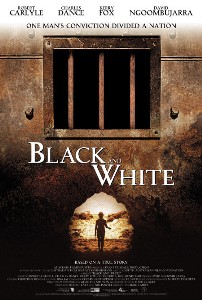
Black and White is a 2002 Australian film directed by Craig Lahiff and starring Robert Carlyle, Charles Dance, Kerry Fox, David Ngoombujarra, and Colin Friels. Louis Nowra wrote the screenplay, and Helen Leake and Nik Powell produced the film. For his performance in the film, Ngoombujarra won an Australian Film Institute award in 2003 as Best Actor in a Supporting Role.
Paul Blackwell was an Australian actor, mainly known for his stage work. He played a major role was in Rolf De Heer's 1996 film The Quiet Room and other film roles, and was also co-creator and director on a number of stage productions.
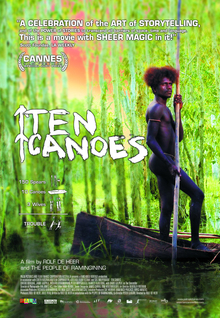
Ten Canoes is a 2006 Australian historical drama/docudrama film directed by Rolf de Heer and Peter Djigirr and starring Crusoe Kurddal. The film is set in Arnhem Land in northern Australia, before Western influence, and tells the story of a group of ten men doing traditional hunting in canoes. A narrator tells the story, and the overall format is that of a moral tale.

Rolf de Heer is a Dutch Australian film director. De Heer was born in Heemskerk in the Netherlands but migrated to Sydney when he was eight years old. He attended the Australian Film, Television and Radio School in Sydney. His company is called Vertigo Productions and is based in Adelaide. De Heer primarily makes alternative or arthouse films. According to the jacket notes of the videotape, de Heer holds the honor of co-producing and directing the only motion picture, Dingo, in which the jazz legend Miles Davis appears as an actor. Miles Davis collaborated with Michel Legrand on the score.

The Tracker is a 2002 Australian drama film/meat pie Western directed and written by Rolf de Heer and starring David Gulpilil, Gary Sweet and Damon Gameau. It is set in 1922 in outback Australia where a colonial policeman (Sweet) uses the tracking ability of an Indigenous Australian tracker (Gulpilil) to find the alleged murderer of a white woman.

All My Friends Are Leaving Brisbane is a 2007 Australian romantic comedy film directed by Louise Alston and written by Stephen Vagg. It follows Anthea, a 25-year-old girl who hates her job and has to sit back and watch as all her friends move away from her hometown, Brisbane, to make a better life. In 2013, The Guardian referred to it as a "cult film" inspired by "a typically Brisbane lament... the departure of people in their late 20s to Sydney, Melbourne, London or New York."
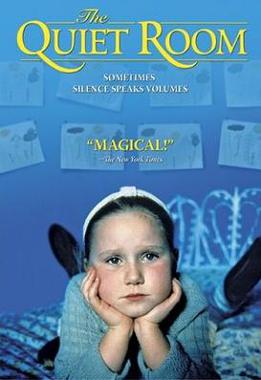
The Quiet Room is a 1996 Australian drama film directed by Rolf de Heer. It competed for the Palme d'Or at the 1996 Cannes Film Festival.
Slapstick Festival is an annual comedy film festival in Bristol, United Kingdom. The festival, which was created in 2005 by Bristol Silents, screens silent, classic, and visual comedy films. The mission of the festival is to introduce these films to modern audiences and bring them to life for a new generation of viewers. Silent comedies are presented with musicians performing a score live, introductions by special guests, and various special events take place throughout the festival.

The Old Man Who Read Love Stories is a 2001 Australian adventure drama film directed by Rolf de Heer. It is based on the book of the same name by Luis Sepulveda.
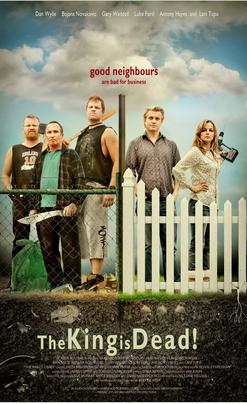
The King Is Dead! is a 2012 Australian comedy drama thriller film directed by Rolf de Heer about a young couple who are tormented by the neighbour from hell.

Charlie's Country is a 2013 Australian drama film directed by Rolf de Heer. It was selected to compete in the Un Certain Regard section at the 2014 Cannes Film Festival where David Gulpilil won the award for Best Actor. It was also screened in the Contemporary World Cinema section at the 2014 Toronto International Film Festival and awarded the Best Fiction Prize and the Youth Jury Prize at the 2015 International Film Festival and Forum on Human Rights (FIFDH) in Geneva.
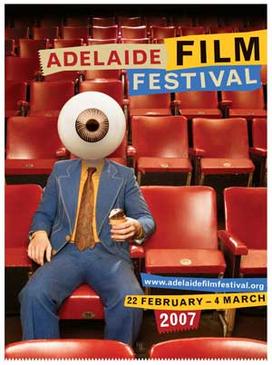
The 3rd Adelaide Film Festival took place in Adelaide, South Australia, from 22 February to 4 March 2007. Katrina Sedgwick was again Festival Director. Rolf de Heer received the 2007 Don Dunstan Award for his contribution to the Australian film industry.
Tania Nehme is an Australian film editor. She has edited a number of films directed by Rolf de Heer and won and been nominated for many awards for her editing work.
Graham Tardif is an Australian screen music composer. He is the composer on ten feature films directed and written by Rolf de Heer. Their most acclaimed collaboration, The Tracker (2002), resulted in an APRA-AGSC Screen Music Award for "Far Away Home" as Best Original Song Composed for a Feature Film, Telemovie, TV Series or Mini-Series in 2002. The Tracker also provided wins at Film Critics Circle of Australia Awards and IF Awards for the pair.













